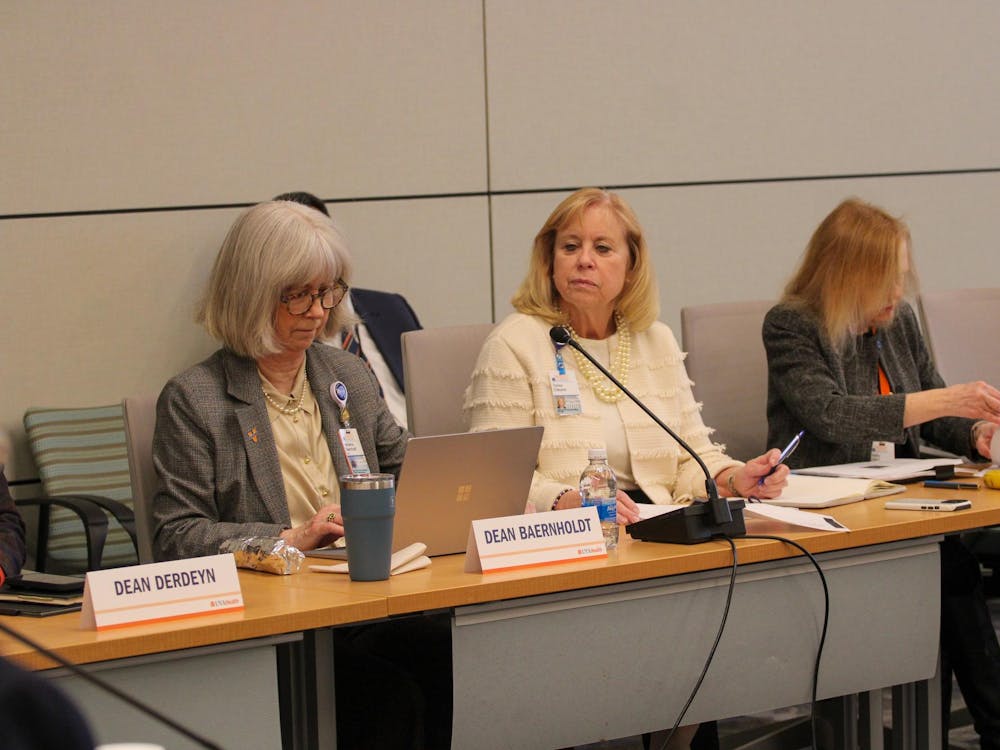The College Council hosted a film screening yesterday evening of "Habibi Rasak Kharban," a film written, directed and produced by 1999 University alumna Susan Youssef. The screening kicked off Council's "Arts Madness" initiative, a weeklong celebration of art at the University which will conclude March 20 with a student art auction.
Council President and third-year College student Nabilah Jiwani said Council brought Youssef to the University to provide a voice to the political aspect of arts and media.
The film follows the relationship and eventual separation of two lovers struggling to be together following their return home to present-day Gaza amid the political turmoil of Israeli involvement in Palestine. Forbidden from interacting, the lovers communicate through poetry graffitied on the walls of the town. The film is based on the ancient Sufi parable "Majnun Layla."
"What's so important [is] that you can bring in poetry, you can bring in drama, you can bring in literature, and that's what changes a political situation, and for the [Arts Madness] initiative that's the integral thing," Jiwani said.
Youssef majored in English at the University, concentrating in Modern Studies. Before making the film, she worked as a teacher and journalist in Beirut.
"That two-year period that I [lived in Beirut] really formed what I wanted to do," she said. "I already had this obsession with my Arab identity and Arabic stuff when I was an undergrad, but Beirut really helped me learn more about [the Arab world]."
Youssef, who funded the production mainly through grants and awards, traveled with cast and crew into the Gaza Strip for filming. She said she specifically chose local actors and actresses to make it easier for her to travel with her crew.
Youssef said the film's message was not to critique Israeli involvement in Palestine. She hopes to screen the film in Gaza but will be cautious not to disrespect the communities the film represents.
"There's a dance between what is acceptable and what people want," Youssef said. "The loss of freedom through education, through love, is devastating beyond... the [Israeli] occupation."
Fourth-year College student Jacob Kohn said screenings like these give students a different sense of culture than they would get from just reading texts.
"I thought this one was particularly good because it reflected a lot of divisions of the Palestinian society and the issues that Palestinians in Gaza face, not just from Israel but within their own societies," Kohn said.
-compiled by Catherine Jessee






